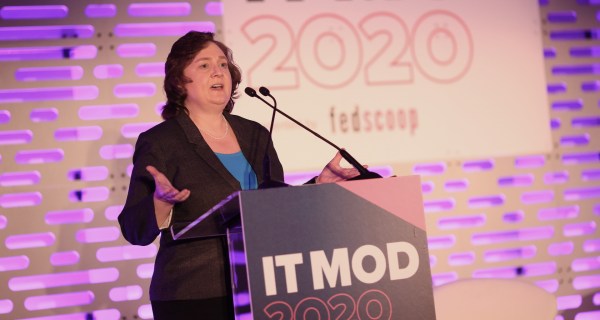Americans don’t trust companies with their data, but give it up anyway


(Pixabay)
Americans by and large seem to be of the opinion that to be a consumer on the Internet today, they have to surrender their personal data. But how they feel about that sacrifice is tougher to pin down.
According to research unveiled Thursday, most Americans are willing to sacrifice their data privacy if they believe it will somehow benefit them; otherwise they are resigned to the fact they have no control over their personal information if they plan on being a consumer in the modern, Internet-connected, data-driven retail space.
The former conclusion is suggested by a study released by the Pew Research Center Thursday, which measured attitudes to privacy and surveillance among a nationally representative and statistically valid sample of adult Americans, and then explored the results in a series of focus groups.
A majority of respondents told Pew they have low levels of confidence in both business and government when it comes to data collection; but many were prepared to put their concerns aside if there was a trade-off — some benefit they got in return. Supermarket loyalty cards, for instance, track holders’ shopping preferences in return for discounts on products — a trade-off seen as acceptable by 47 percent of survey respondents.
By contrast, research presented at the Federal Trade Commission’s PrivacyCon Thursday suggested that marketers are taking advantage of the widespread acceptance of certain kinds of trade-offs to collect massive amounts of data — and thereby inspiring cynicism and resignation among Americans about their privacy
“The rationale of trade-offs is a fig leaf used by marketers to justify a world of tracking and increasing personal online profiling that people know is there, don’t understand and say they don’t want,” said Joseph Turow, a professor of communication at the University of Pennsylvania.
A report Turow co-authored found that people often do not have a basic understanding of the policies attached to data collection, so when they weigh the costs and benefits of handing over their data to companies, they end up without all the facts needed to make an informed decision.
“People do these things online, in stores, with apps, not because they’re thinking in a cost-benefit way rationally, but because they feel they have no other choice if they want to live in this world,” he said Thursday. “When we met people they would say, ‘Gee, I have to give up the data. I want to be online. I know they do this stuff but I don’t know what’s going on but I have to do it anyway.’”
Other research presented at the FTC conference gave a glimpse at how much tracking is being done through the Web. Research from the University of California-Berkeley found a stark rise in the number of tracking cookies being used on the world’s top 100, 500 and 1000 websites.
“So much tracking is going on,” said Ibrahim Altaweel, co-author of the Cal report. “Users who merely visit the 100 websites would collect over 6000 HTTP cookies, twice the number tracked in 2012.”
Researchers found that among those top 100 websites, 24 of them have over 100 tracking cookies, six over 200, and three have more than 300 cookies. Altaweel attributed this rise to cookies used by publicly known firms like Google and Facebook, as well as other third-party companies that consumers have very little knowledge of.
“Google can track you almost as much as an internet service provider, such as Verizon or Comcast,” Altaweel said.
As to what more conventional companies are doing with consumer data, both the Pew Research and University of Pennsylvania studies surveyed people on a common scenario: how supermarkets track data through their loyalty shopping programs.
In the Pew survey, nearly half of respondents (47 percent) said they would join a loyalty shopping club even if the store tracks habits and sells that data to third parties. Nearly a third (32 percent) said they wouldn’t. But questions about how that data is used, what protections are in place, and whether it would result in being spammed with unwanted to emails or phone calls persisted no matter whether people would or would not sign up for such a service.
However, similar questions in the Penn survey yielded different results. Ninety-one percent of respondents said they were not on board with companies that give discounts in exchange for not knowing what a company does with their data. A majority of respondents were also against the exchange if they were given free in-store Wi-Fi or the store promised to use the data to improve their services.
“The more we ask particular questions about individuals lives, the less they said they would do it,” Turow said.
Before trust can be restored, Turow said people need to do a better job of understanding the trade-offs they make with their data and holding companies accountable if they don’t like the way data is currently being collected.
“There are lots of things that are terrific about [data collection] I couldn’t live without Google,” Turow said. “There are a lot of companies saying some great things, but underlying it all there are some problems that we have to face. Part of being a citizen in a society is to say, ‘Yeah there are terrific things about this, but there are also things in the long term might harm our democracy and might harm our relationship with others.’”
Contact the reporter on this story via email at greg.otto@fedscoop.com, or follow him on Twitter at @gregotto. His OTR and PGP info can be found here. Subscribe to the Daily Scoop for stories like this in your inbox every morning by signing up here: fdscp.com/sign-me-on.






